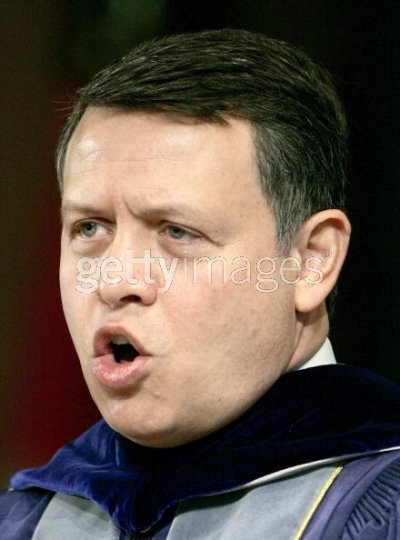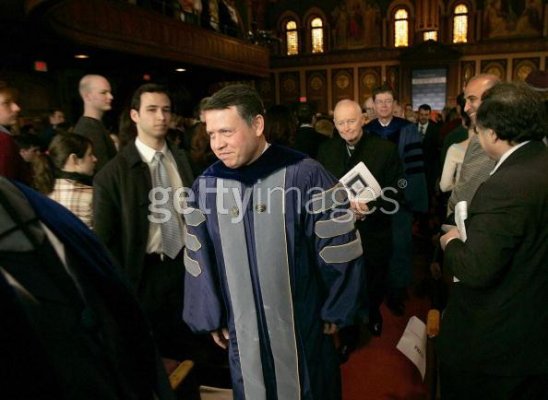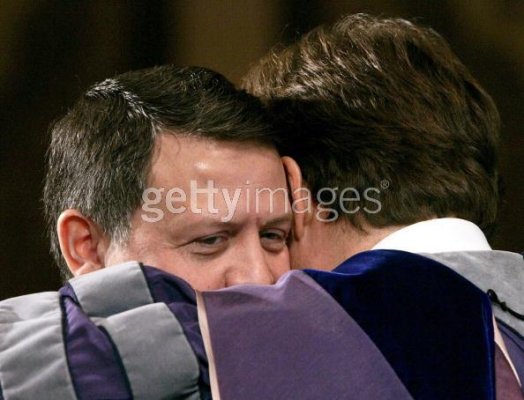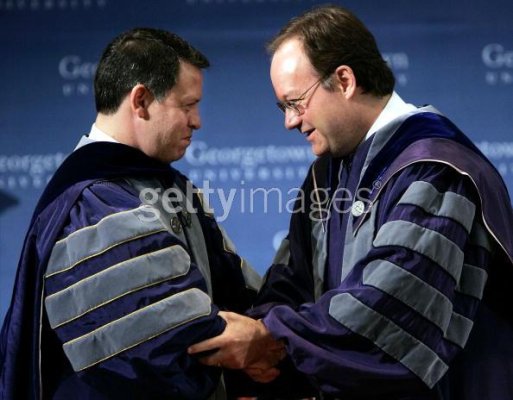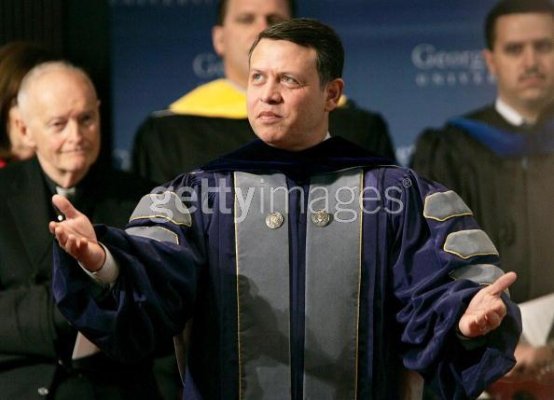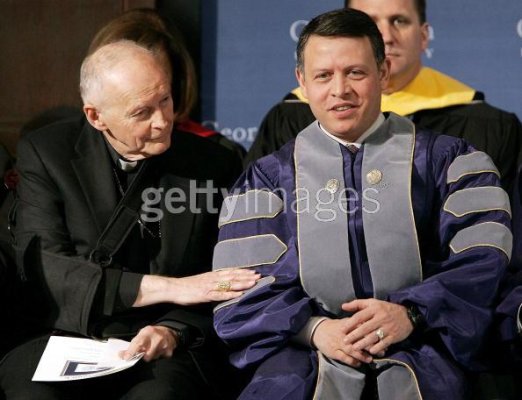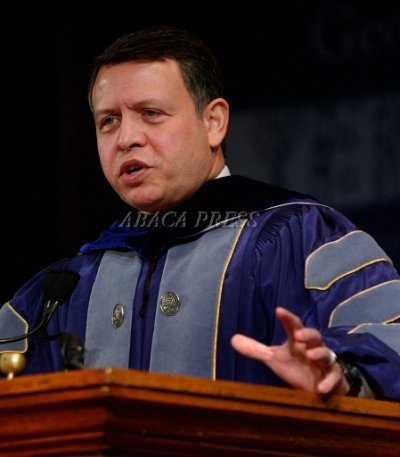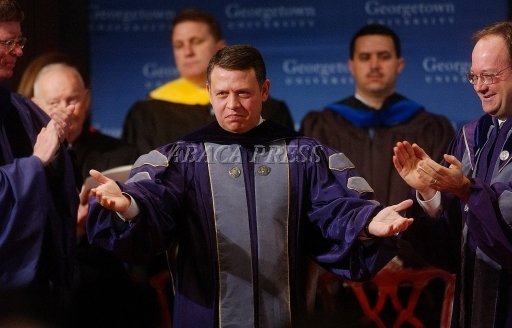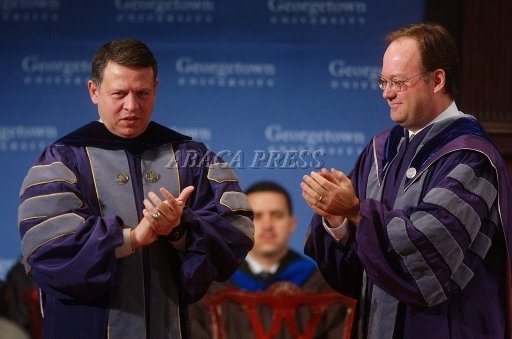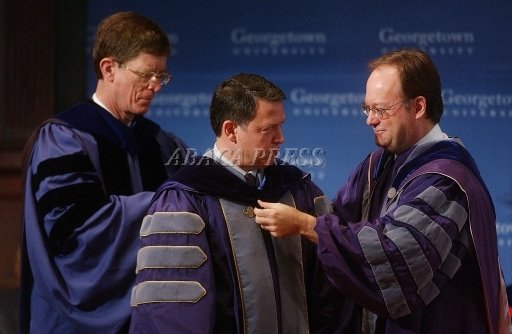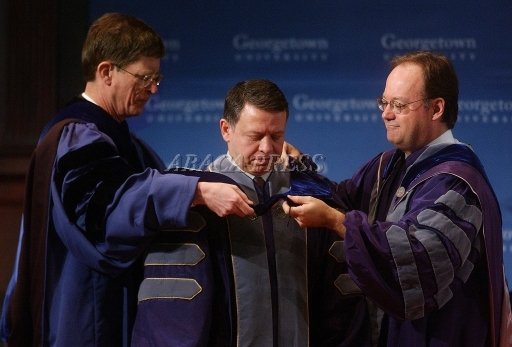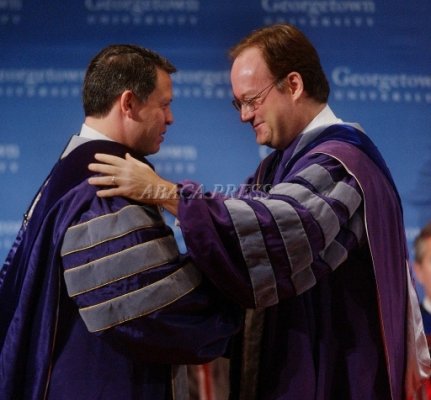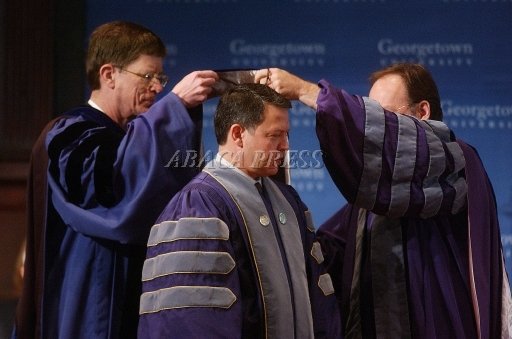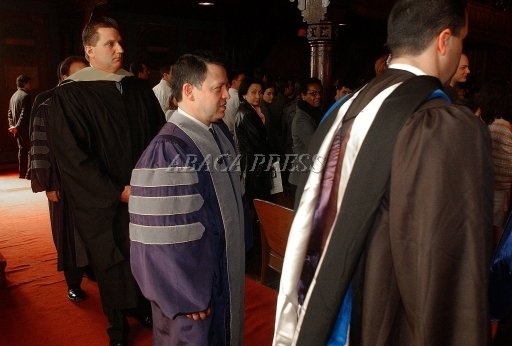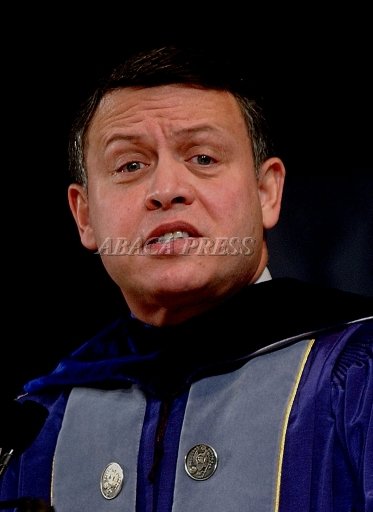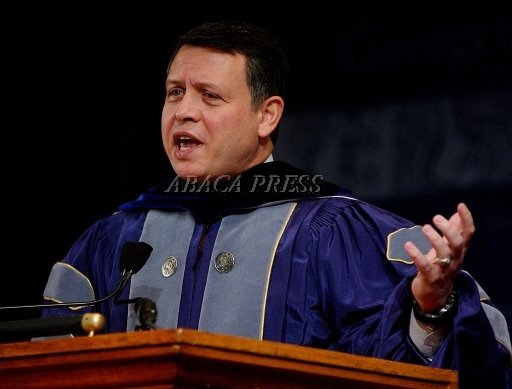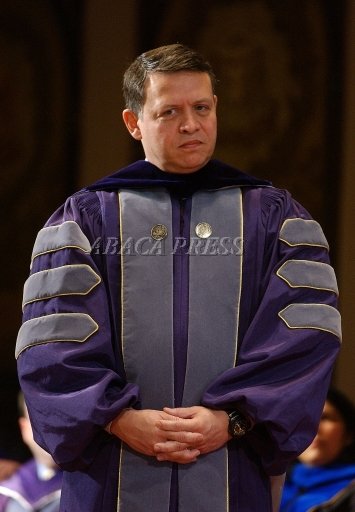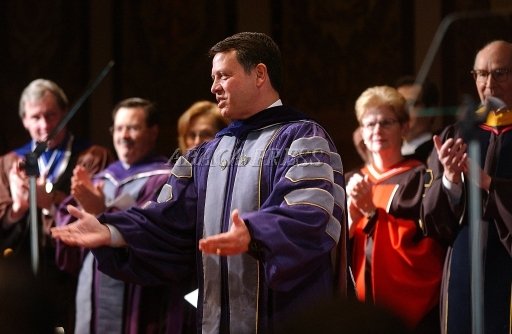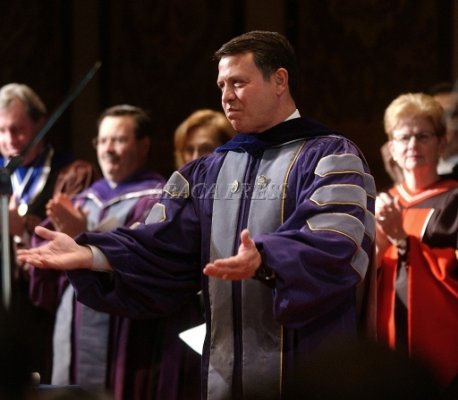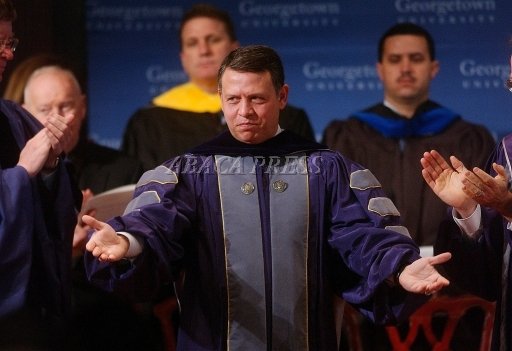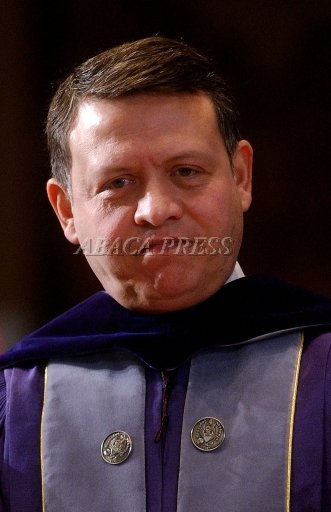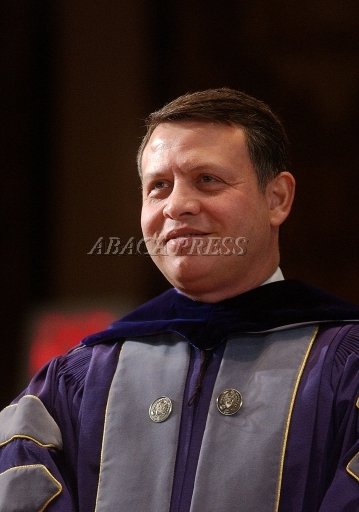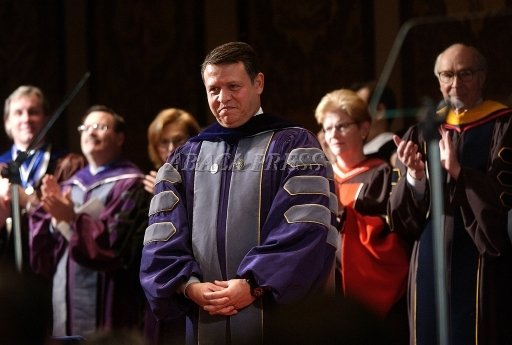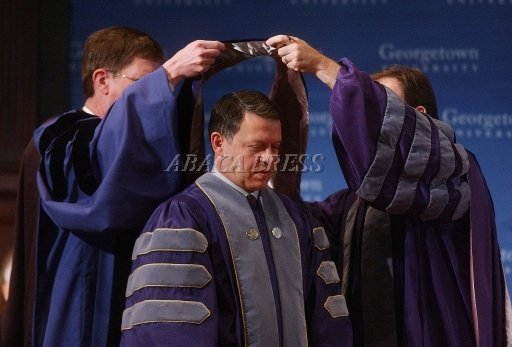Transcript ABC Interview
Reina said:
Actually I heard the Peter Jennings grilled him pretty hard, especially on the fact that KA has not given freedom to the media. It woudl be good to get that transcript. KA was pretty much tongue-tied.
The part concerning Jordan (there is nothing on the media):
JENNINGS: And you've said a couple of times now about pushing the envelope in Jordan. What do you mean?
ABDULLAH: Well, two things, that we've done. Obviously we have a national agenda, which is a sort of a 10-year program, bringing in civil society to create a road map on where Jordan should go. I think that is very important. More importantly, from my short-term point of view, with political reform is this idea of complete government decentralization, and created three regions in Jordan, North, Central and South. And allowing those regions to be able to talk about their own futures, and be part of the building block of a new democratic process in Jordan.
JENNINGS: Who would win a free election in Jordan today?
ABDULLAH: Well, unfortunately, this is the problem that we've been dealing with. We have 30 political parties, none of which really have any political platforms, and the problem that I've been facing is that next parliamentary elections, in two years time, I don't want parliament officials being elected because they belong to this tribe or this village or this particular constituency. I want them to be elected on a party political platform. And this is one of the reasons why we moved into this decentralization, this sort of regional program, to try and get grass-root process in creating two or three parties that represent left, right and center.
JENNINGS: Any number of international organizations, including Amnesty International and Human Rights Watch, international organizations that favor democracy, say that one of the impediments to political development in Jordan is in fact the crown itself, namely you.
ABDULLAH:Well, by decentralization, by being able to create three or four political parties as opposed to 30, I think that we can strengthen the institutions, so that the crown can take a step back and people can take a step forward.
JENNINGS: But if people want 30 political parties, why shouldn't they have them?
ABDULLAH: Well, you can have 30, you can have 50, but political parties, if we're trying to -- I mean, seriously move the process along, 30 parties or more that do not have political party platforms, where they stand on the economy, where they stand on social services, health, education, I don't think that's the mature way of growing them. We're trying to, and this is the problem, the khan can't step in and say to political parties, 'Shouldn't you come up with a political party program?' But we're hoping, with democratic maturity, that that happens, and, we haven't -- (Overlap)
JENNINGS: Excuse me for interrupting. Who decides democratic maturity? Who is --.
ABDULLAH: The people.
JENNINGS: -- as of now, you decide democratic maturity?
ABDULLAH: Well in this particular position, we formed the government, that the parliament is elected by the people. But to encourage that, I mean, I have been in discussions with parliamentarians that would it be stronger for you to create where you stand on issues of education, social services, et cetera, et cetera, so that you can create a political party so that in the future, the people actually pick you for where you stand, and not because you happen to be a cousin or a tribal member?
JENNINGS: Would you be happy to be the head of a constitutional monarchy, as well ...
ABDULLAH: Well, eventually ... (Overlap)
JENNINGS: ... than an absolute monarchy?
ABDULLAH: ... eventually that's what we're trying to do, and by creating, decentralization, by trying to get these three regions, with their own elected parliaments, that will be the end game.
JENNINGS: So the end game could be a constitutional monarchy, not an absolute monarchy?
ABDULLAH: Absolutely. Because that -- I mean, we have to modernize, I think monarchy plays a vital role in countries such as Jordan. I think there's a lot of positive aspects, but monarchies have to modernize, and a way of modernizing is to do these political reform issues that will give people a much larger say in the way their countries go.
JENNINGS: Can I put it to you quite bluntly, sir: Do you condone the torture of prisoners in the Jordanian penal system?
ABDULLAH: Not at all, and there has been some cases reported where there has been abuse between prisoners and between police prison guards. And I have a new police chief at the moment that is looking into that. We have problems where we've got, as many countries do, overcrowding in jails. We're trying to build new infrastructure. And I gather from the chief of police that he has actually cleaned out a lot of people that he felt are corrupt and not up to the standard. And if we are going to be part of the international community, certain standards need to be set, and especially in jails.
JENNINGS: Why do you think the United States is sending, quote, suspected terrorists, unquote, to Jordan?
ABDULLAH: I'm not fully aware of that process. I know this has been reported in the press. And I don't have enough information to be able to answer that. (Overlap)
JENNINGS: It's a very big issue in the United States, as I'm sure you know, because Americans believe that prisoners are being sent, or rendered, as it's called, to countries where torture is permissible ...
ABDULLAH: Right.
JENNINGS: ... or acceptable, rather than here.
ABDULLAH: Right. Well, again, I'll have to talk to my people about that, but I think that we have standards that we want to keep as part of the international community, and if there are any wrongdoings done in Jordan, then, you know, we need to make sure that those issues are addressed.
JENNINGS: Can you imagine yourself saying no to the United States, if the United States wanted to send a suspected terrorist to the Jordanian system?
ABDULLAH: (Deep breath) Well, I'd , I would have --I guess we'll cross that bridge when we come to it, but I know we have a very good relationship between the Jordanian and American government. I wish I had more information to be able to give you on that particular issue.
JENNINGS: As Americans look at these changes in the Middle East, now they look at Jordan without question, including the restrictive political party's law. Why does that not change, and why could that not change immediately?
ABDULLAH: Well, we're in actually in the process of changing those issues.
Copyright © 2005 ABC News Internet Ventures
The full interview is here:
http://abcnews.go.com/WNT/print?id=583538


